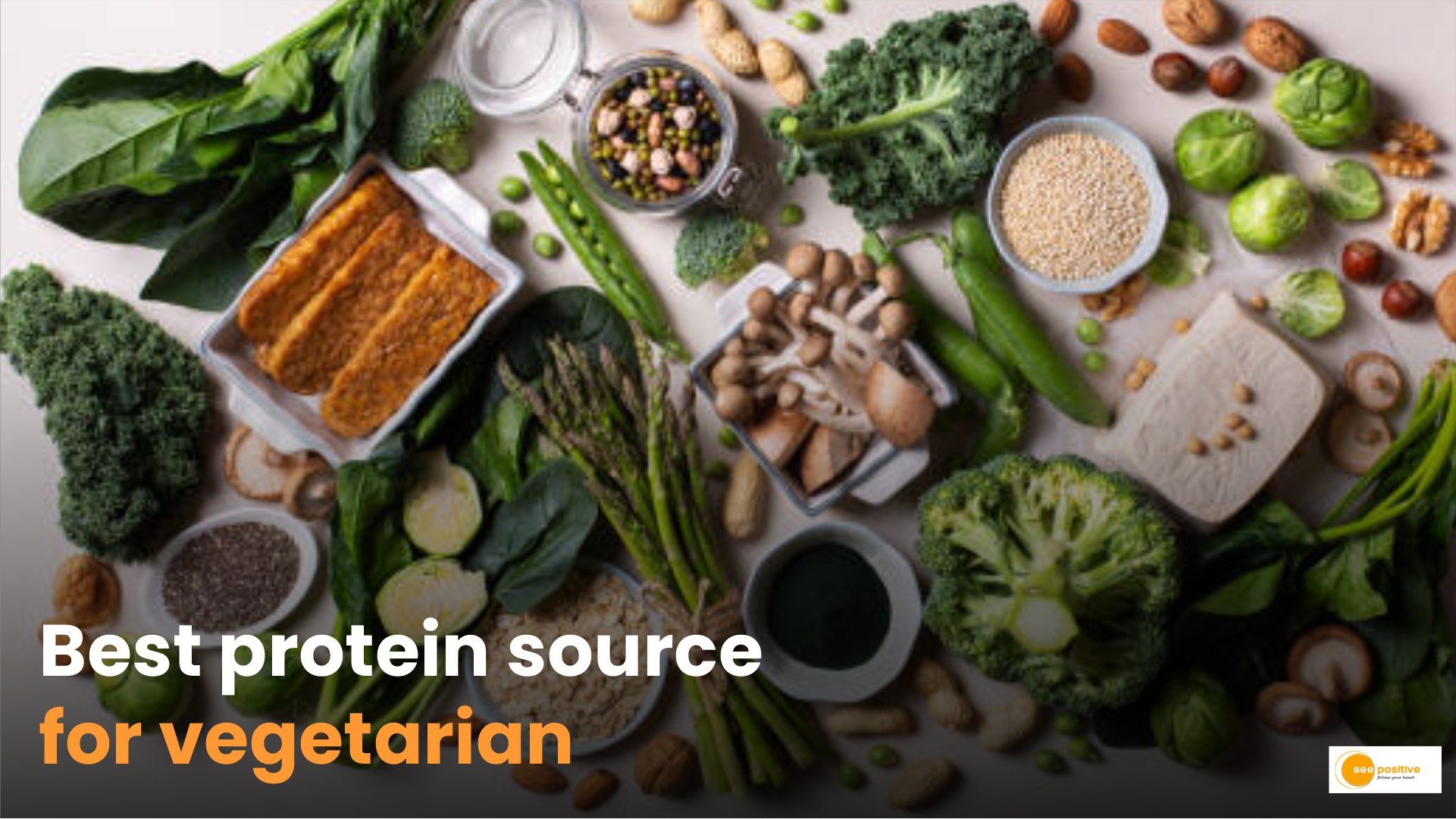Vegetarian Protein Sources: Protein is essential for our body, helping in muscle repair, immune function, and energy production. For vegetarians, finding good protein sources without relying on meat can be challenging. However, there are plenty of nutrient-rich, plant-based options that make it easy to meet daily protein requirements. Here are some of the best protein sources for vegetarians.
1. Lentils
Lentils are a popular and affordable source of protein for vegetarians. Packed with fiber and protein, they are great for digestion and support muscle growth. A single cup of cooked lentils contains around 18 grams of protein, making it a substantial addition to meals. Lentils can be used in soups, salads, and curries, offering a variety of ways to add protein to your diet.
2. Chickpeas
Chickpeas are not only protein-rich but also loaded with essential nutrients like iron, zinc, and magnesium. They contain about 15 grams of protein per cup when cooked. Chickpeas are versatile and can be used in dishes such as hummus, salads, or roasted as a healthy snack.
3. Quinoa
Quinoa is a complete protein, which means it contains all nine essential amino acids. With about 8 grams of protein per cup, quinoa is also rich in fiber and minerals like magnesium and iron. It can be a great substitute for rice or pasta and is perfect for salads and grain bowls.
4. Greek Yogurt
For vegetarians who consume dairy, Greek yogurt is an excellent protein source. It contains nearly double the protein of regular yogurt, with around 10 grams of protein per 100 grams. Greek yogurt is also high in calcium and probiotics, which are good for bone health and digestion. It can be enjoyed on its own or added to smoothies and parfaits.
5. Cottage Cheese
Cottage cheese is another great dairy-based protein source, with about 12 grams of protein per half-cup serving. It’s low in fat and calories, making it suitable for those looking to stay fit. Cottage cheese can be eaten with fruits or used in salads, adding both protein and creaminess.
6. Tofu
Tofu is a go-to protein source for many vegetarians. Made from soybeans, it offers about 10 grams of protein per half-cup serving. Tofu is incredibly versatile and can be added to stir-fries, soups, or grilled for a satisfying meal. It also absorbs the flavors of the ingredients it’s cooked with, making it a popular choice in various cuisines.
7. Edamame
Edamame, or young green soybeans, is another protein-rich food from the soybean family. It provides about 17 grams of protein per cup and is packed with fiber, vitamins, and minerals. Edamame can be eaten as a snack, added to salads, or mixed with rice dishes for an extra protein boost.
8. Chia Seeds
Chia seeds may be small, but they are mighty in nutrition. They contain around 5 grams of protein per ounce and are high in omega-3 fatty acids, fiber, and antioxidants. Chia seeds can be added to smoothies, yogurt, or used to make chia pudding for a nutritious snack or breakfast.
9. Almonds
Nuts, particularly almonds, are great sources of protein and healthy fats. With about 6 grams of protein per ounce, almonds are ideal for snacks or can be added to smoothies, oatmeal, and salads. They are also rich in vitamin E and magnesium, which help with muscle function and energy production.
10. Green Peas
Green peas are an excellent, inexpensive source of protein with around 8 grams per cup. They’re also high in fiber, vitamin C, and other important nutrients. Green peas can be added to stews, soups, and pasta dishes, making it easy to increase your protein intake without much effort.
Conclusion
Vegetarians have a wide range of protein sources to choose from that are both delicious and nutrient-packed. Whether you prefer beans, dairy, or seeds, there’s an option for everyone. These protein-rich foods support overall health and help maintain energy throughout the day. Adding these protein sources to your diet can make your vegetarian meals balanced and fulfilling.


